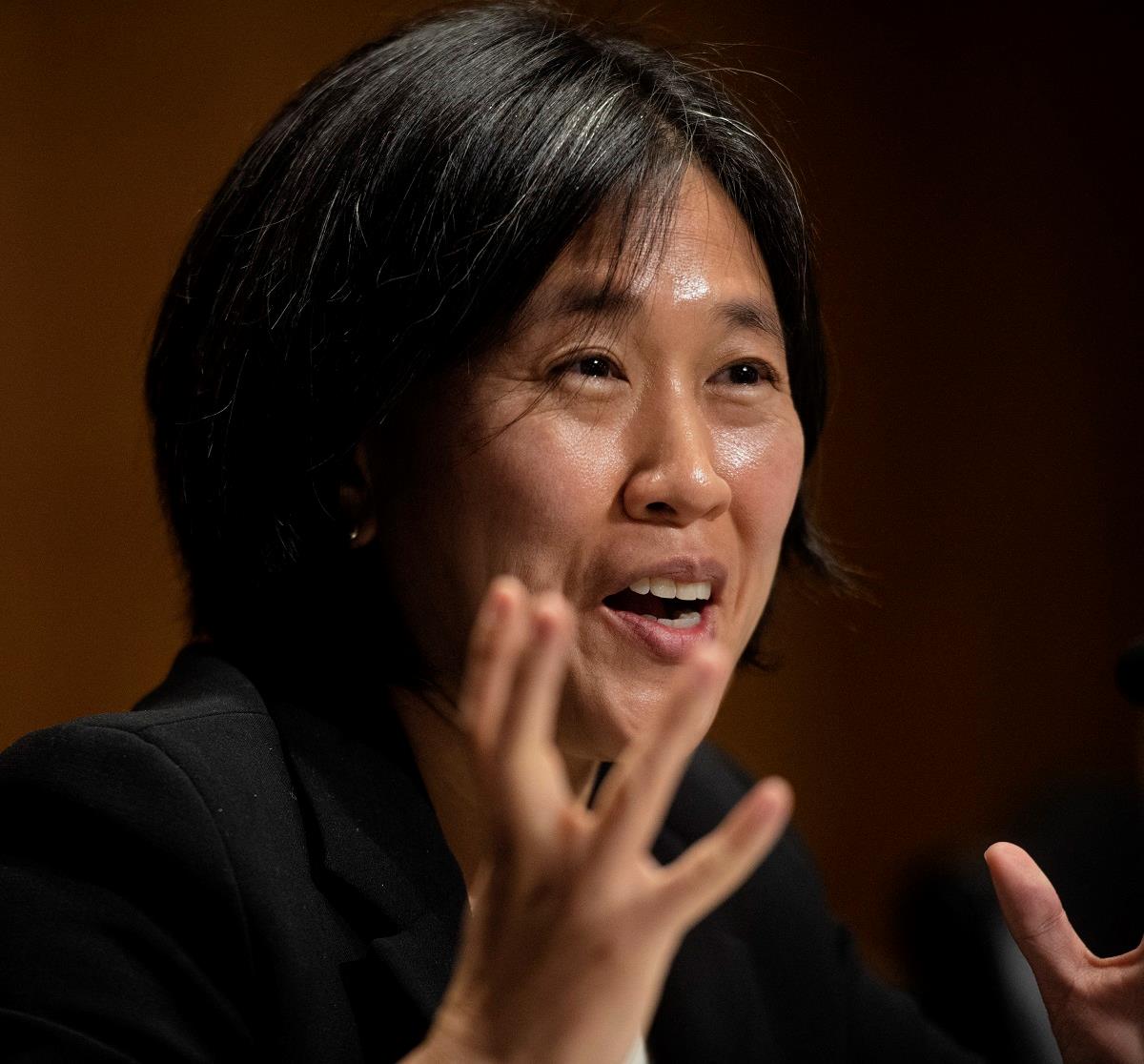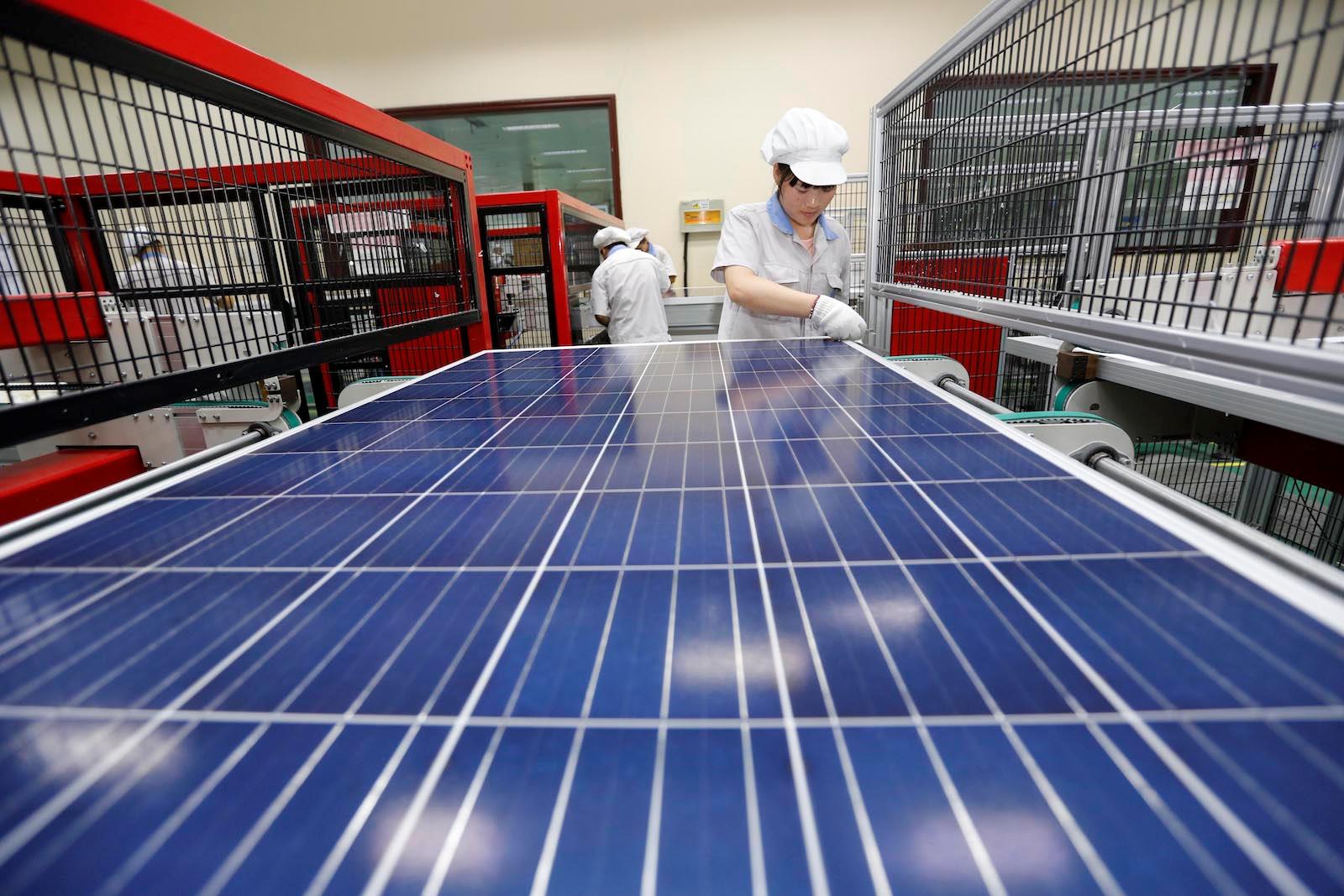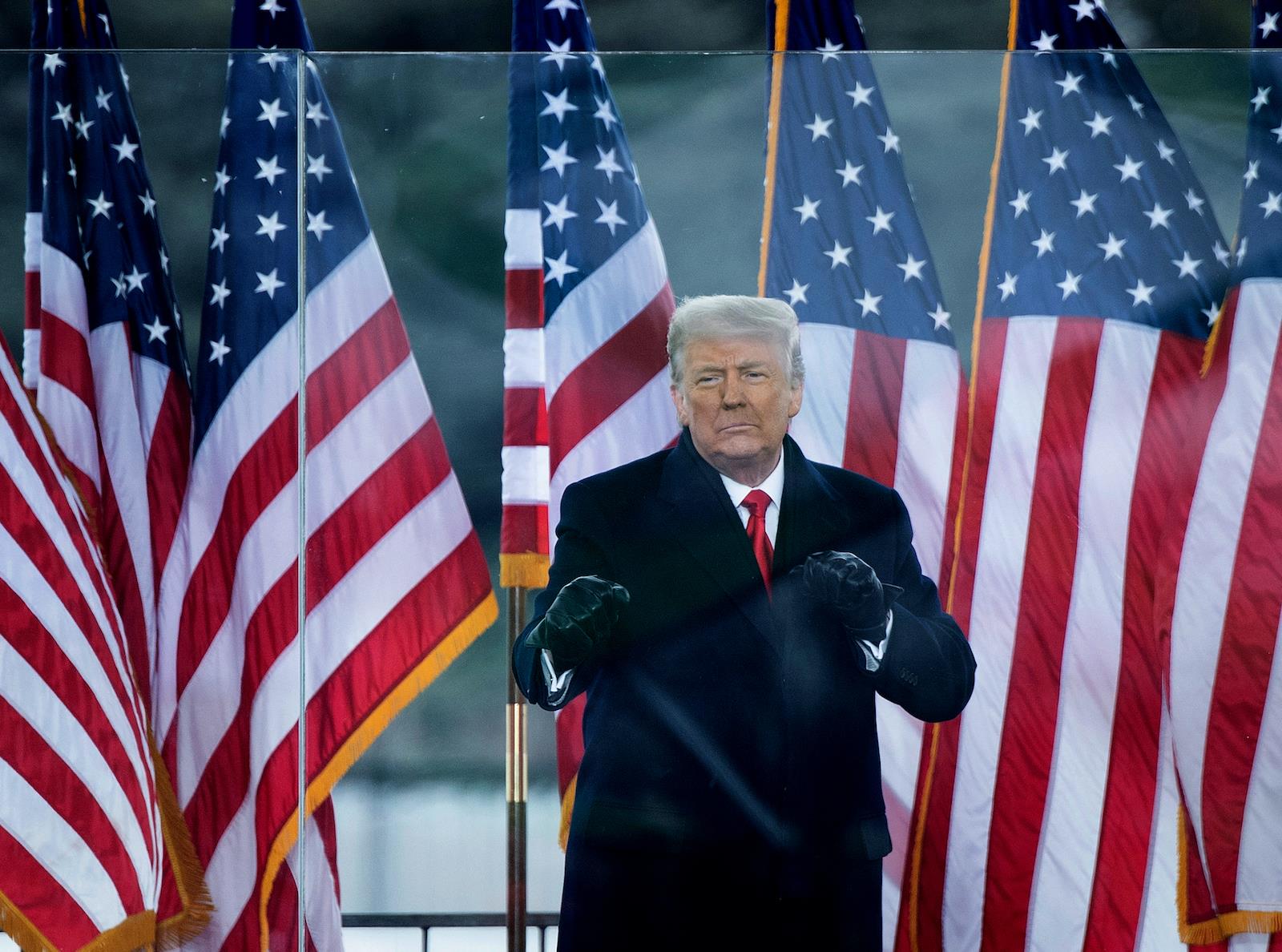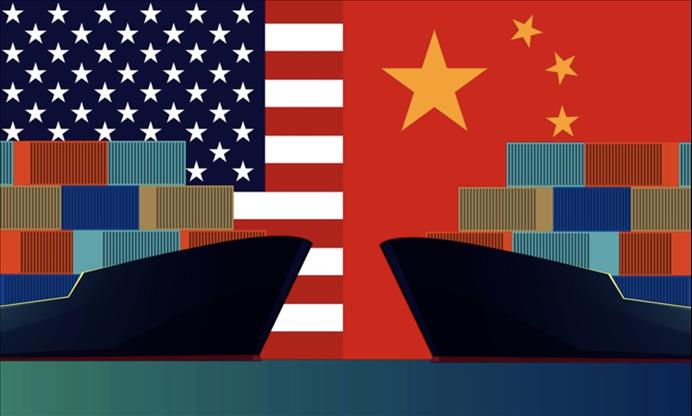
China defiant amid new US trade war threats
(MENAFN- Asia Times) China is prepared for battle in the trade and technology wars started by the United States and will maintain policies that can increase its competitiveness, Chinese state media said on Tuesday after the US unveiled its new tough trade approach.
On Monday, US Trade Representative Katherine Tai said in a speech that the US would“deploy all tools and explore the development of new ones, including through collaboration with other economies and countries,” to address the fundamental concerns related to China's trade practices.
Tai will have a video call with Chinese Vice Premier Liu He within days, according to news reports.
The Chinese government has not yet commented on Tai's speech but two hardline articles published by the Communist Party mouthpiece Global Times said China was willing to fine-tune its policies in terms of intellectual property, investment and trade balance but would not change the plan to boost its technological and innovative capabilities.
Since China officially joined the World Trade Organization in December 2001, the US has pursued a dual-track approach to push China towards complying with WTO rules by holding high-level dialogue with Beijing and filing dispute settlement cases at the WTO.
But it said it did not see meaningful reforms of China's state-centric economic model and decided to substantially increase tariffs on imports from China from 2018, which Beijing has retaliated with its own punitive measures.
In January 2020, the Trump administration and China signed a so-called phase-one trade deal, which requires China to protect intellectual property, purchase American products and improve market access for the agriculture and financial services sectors. Based on US export data, China has only completed 62% of its trade deal agreements as of August.
“Our analysis indicates that while commitments in certain areas have been met, and certain business interests have seen benefits, there have been shortfalls in others,” said Tai, adding that the phase-one agreement had stabilized the market, especially for US agricultural exports.
“This agreement did not meaningfully address the fundamental concerns that we have with China's trade practices and their harmful impacts on the US economy,” Tai said.

US Trade Representative Katherine Tai says the US will deploy all tools and explore the development of new ones. Photo: AFP / Bill O'Leary
“Even with the phase-one agreement in place, China's government continues to pour billions of dollars into targeted industries and continues to shape its economy to the will of the state – hurting the interests of workers here in the US and around the world.”
Tai said China currently owned 60% of steel production and 80% of solar cell production globally through its“unfair” policies and had already spent at least US$150 billion, with more on the way, to establish a world-leading semiconductor industry by 2030.
“That is why we need to take a new, holistic, and pragmatic approach in our relationship with China that can actually further our strategic and economic objectives – for the near-term and the long-term,” Tai said.
“In the coming days, I intend to have frank conversations with my counterpart in China. That will include discussion over China's performance under the phase one agreement.”
She said the US would directly engage with China on its industrial policies with an objective not to inflame trade tensions with China.
The US would restart its targeted tariff exclusions process to mitigate the effects of certain tariffs that raised costs on Americans, she said.
On September 29, Tai and US Secretary of State Antony Blinken, together with European Commission executive vice presidents Margrethe Vestager and Valdis Dombrovskis, held the first meeting of the EU-US Trade and Technology Council in Pittsburgh.
The Council set up 10 working groups on different topics, including misuse of technology threatening security and human rights, export controls and investment screening, aiming to protect EU-US businesses, consumers, and workers from unfair trade practices, in particular those posed by“non-market economies” that are undermining the world trading system.

China controls 80% of the world's solar panel production.. Photo: AFP
An editorial published by the Global Times said Tuesday that Tai's accusations of China's“state-centered and non-market trade practices” showed the US' tough stance against China. It said Tai indicated that the US might take more unilateral measures, including new investigations, to exert pressure on China to reform its practices.
“According to the principle of trade fairness and mutual benefit, many issues in China-US trade can be fine-tuned. China has made efforts to address the issues of intellectual property rights, investment, and the US demands for trade balance,” said the Global Times.
“However, China opposes the US moves to shake its foundations, prevent it from making plans for its development in technology and innovation, and change its national policies that can help enhance its competitiveness.
“From Tai's speech, it can be seen that the US has realized that it is unrealistic to 'transform China' based on their own interests and in accordance with their thinking. They also understand that it's hard for the US and China to decouple,” it said.
“The Trump administration's arrogant attempt to crush China's will has failed. Now it's time for the US to make certain adjustments.”
The editorial said China's economic scale had not been hurt by the trade war over the past three-and half years but in fact grew faster than the US. It said the US should stop the trade war and use non-coercive methods to resolve problems with China.
In a question-and-answer session , Tai was asked about whether decoupling of supply chains with China is a Biden administration priority.
“The question is whether or not the US and China need to stop trading with each other. I don't think that's a realistic outcome in terms of our global economy,” Tai said.
“I think that the issue perhaps is, what are the goals we're looking for in a kind of re-coupling? How can we have a trade relationship with China where we are occupying strong and robust positions within the supply chain and that there is a trade that's happening as opposed to a dependency?”

The Trump administration launched the first salvos of an ongoing trade war with China. Photo: AFP / Brendan Smialowski
Wang Huade, a columnist at the Global Times, said in an article on Tuesday,“Tai's speech actually has nothing new. Her key message is that 'China should buy US goods quickly as promised'.
“China has not purchased enough US goods because the US refused to sell what China wanted but forced China to buy what it wanted to sell. To a certain extent, Tai is seeking to have a dialogue with China,” Wang wrote.
“But the US must stop its hostility, suppression and slander against China and respect each other's concerns under the principle of equality before any dialogue can happen. Otherwise, it's a waste of time.”
“The US is suffering from its inflationary pressure and has to improve its trade relations with China. We have never seen any beggars who are so self-confident of being right and justified.”
Wang said as many factories in India and Vietnam have stopped production due to Covid-19, Americans would pay extra costs if the US increased tariffs on Chinese goods.
He said the US had already started trade, technology and public opinion wars against China and that China was ready for these long-term battles.
Read: China: Trade war tariffs will backfire on US

Legal Disclaimer:
MENAFN provides the
information “as is” without warranty of any kind. We do not accept
any responsibility or liability for the accuracy, content, images,
videos, licenses, completeness, legality, or reliability of the information
contained in this article. If you have any complaints or copyright
issues related to this article, kindly contact the provider above.


















Comments
No comment